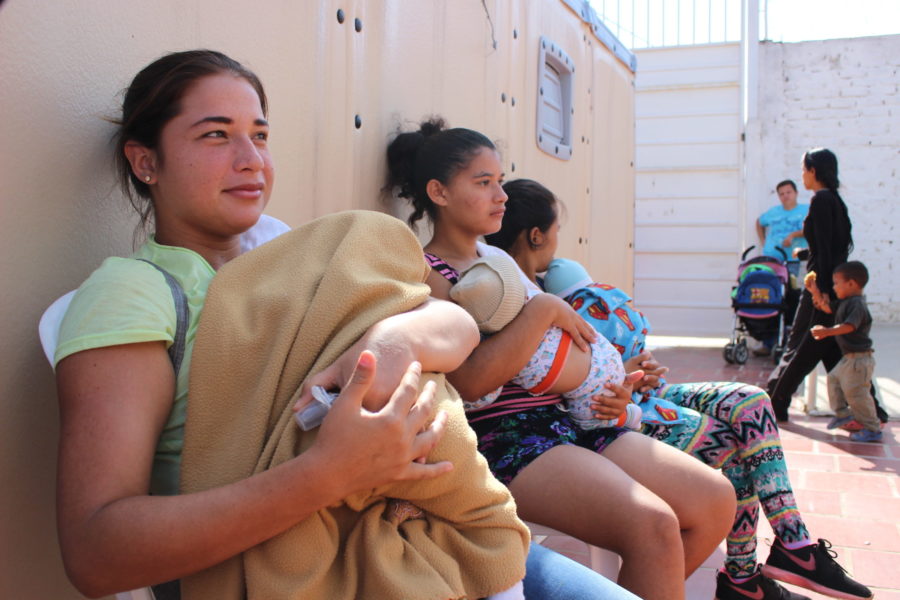Cucuta, Colombia — Home for four-month-old Victor Davic Mendoza is a bedsheet on a distant relative’s floor.
Victor’s mother, Dina Lopez, 17, fears Victor and her two daughters, Dagni, 4, and Jamie, 2, will grow up in poverty.
“We are old and we can put up with it, but with the kids…” Lopez said without finishing her thought.
Dina and Victor Mendoza, 25, didn’t expect their new reality to be almost as harrowing as their old one in Los Teques, Venezuela, where food, medicine, healthcare, and electricity are all scarce.
They join the 4 million others who have fled economic and political chaos in a country that has been spiraling for more than a decade.
Where hyperinflation continues accumulating, nation-wide blackouts last weeks and cases of eradicated diseases are rediscovered, many Venezuelans feel they have no other choice but to flee.
In an effort to stifle dictator Nicolas Maduro, the U.S. has issued sanctions, and countries such as Colombia have closed diplomatic ties with the nation.
The couple is now set to start the process of registering their son as a Colombian, sealing with it their hopes for a better life; a new life that is just several office visits, a folder full of paperwork and several months away –their solution to a problem they never saw coming.
The stateless people
Until last month, Victor Davic was stateless. He had no nationality to his name.
He is one of approximately 24,000 babies born of Venezuelan parents who were promised Colombian citizenship last month because of the “obstacles impossible to overcome” that parents faced.
Parents couldn’t simply pass down their Venezuelan citizenship. There were no operating Venezuelan consulates since the start of this year, and Colombia is one of the few countries in the region that doesn’t grant citizenship by birth.
Colombia has reacted differently from most other countries in the region. Instead of providing barriers to Venezuelan migrants, it has chosen to open its doors, make special work permissions and grant the children citizenship.
Others, including Perú and Chile, have started requiring Venezuelans to have visas, which are almost impossible for poor migrants to afford.
“Now it’s our turn,” said Mariana Medina of the Defensoría del Pueblo of Colombia. “We were migrants in an extreme magnitude, and today we are receiving. It is a moment of solidarity but also to return the favor.”
The complex history between the neighboring countries has defined Colombia’s attitude today, but it still causes a point of contention for younger generations that don’t remember when an economically prosperous Venezuela welcomed thousands of Colombians fleeing violence from the guerrilla warfare.
Still, the influx of migrants has overwhelmed Colombia, which has absorbed an estimated 1.2 million Venezuelans since the chaos began.
‘Where God leads them’
Lopez and Mendoza knew they had to leave when Lopez became pregnant.
“We weren’t feeding ourselves well,” she said. “I didn’t take any vitamins or any of that.”
Dina was showing signs of early preeclampsia, a complication tied to blood pressure that can be fatal. She was at risk of a miscarriage.
Venezuelan migrant mothers tend to show obvious signs of malnutrition, said the Rev. Francesco Bortignon of Misión Scalabrini Cucuta.
“They’ve never had a medical screening,” he said.
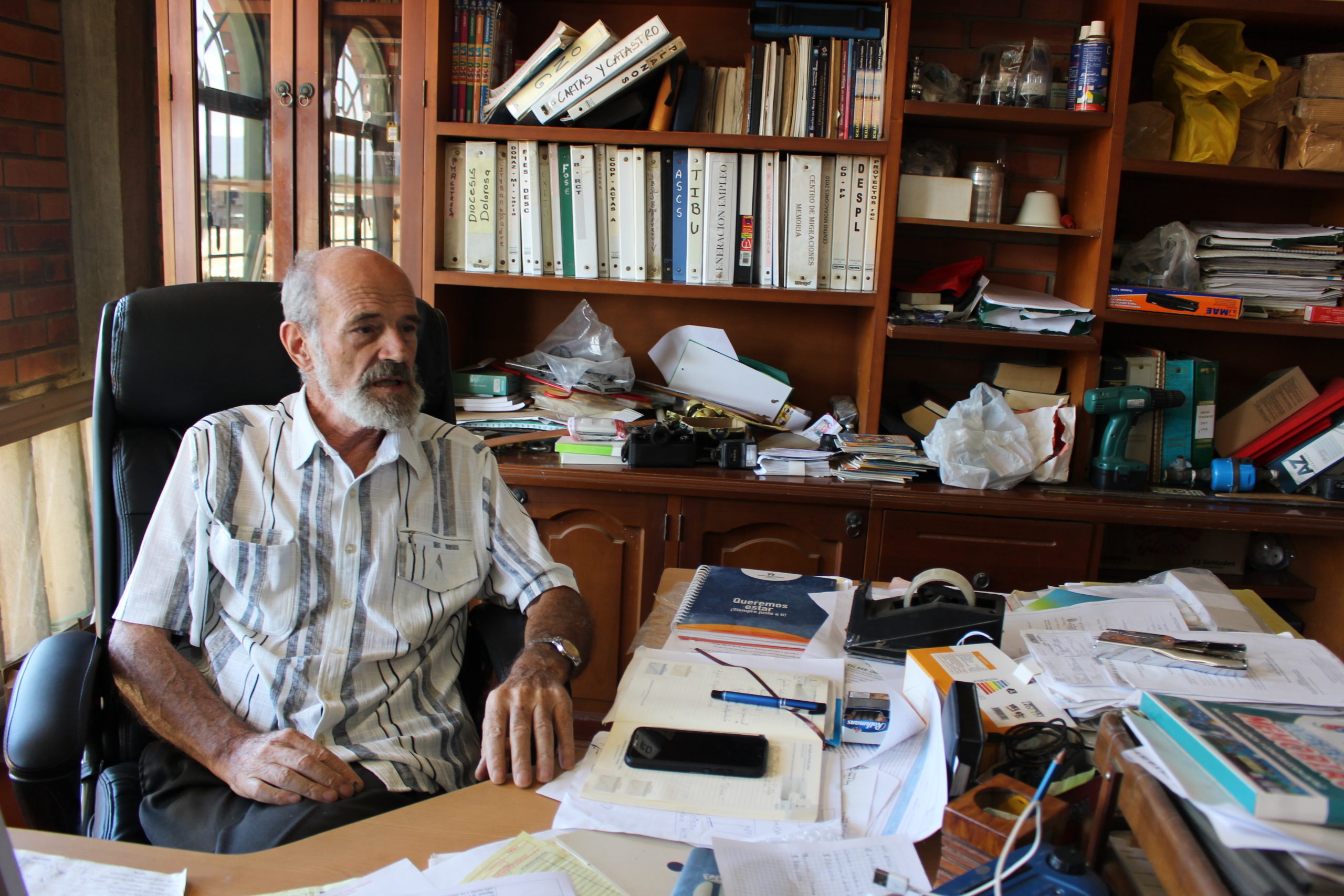
So on Nov. 2 of last year, Mendoza and Lopez, at 19-weeks pregnant, made the trek from Los Teques to Cucuta, finding a ride wherever they could.
Bortignon said women aren’t prepared for the journey. They come wearing flip-flops and threadbare t-shirts. At night, when the temperature falls, some wrap themselves in aluminum foil, hoping to stay warm.
They travel “where God leads them and while their body endures,” Bortignon said.
Migrants often make their way to a new life by crossing Simon Bolivar International Bridge, a place that now has as much vitality as a marketplace. The two-lane bridge was originally designed for vehicles. But now it’s filled with the traffic of footsteps of around 140,000 Venezuelans in 2019, according to Migración Colombia. There, Venezuelans resell anything they can get their hands on: over-the-counter medicine, fruit, socks, and toys.
La Parada is their first stop after making it to Colombia. The tiny town has a soup kitchen, a soccer field and medical facilities sponsored by the United Nations and other humanitarian groups.
“Most pregnant women who walk through our doors are high-risk cases, and we can’t treat them,” said Marcela Rosas, the administrator of Medical Center La Margarita, whose clients are almost exclusively Venezuelan.
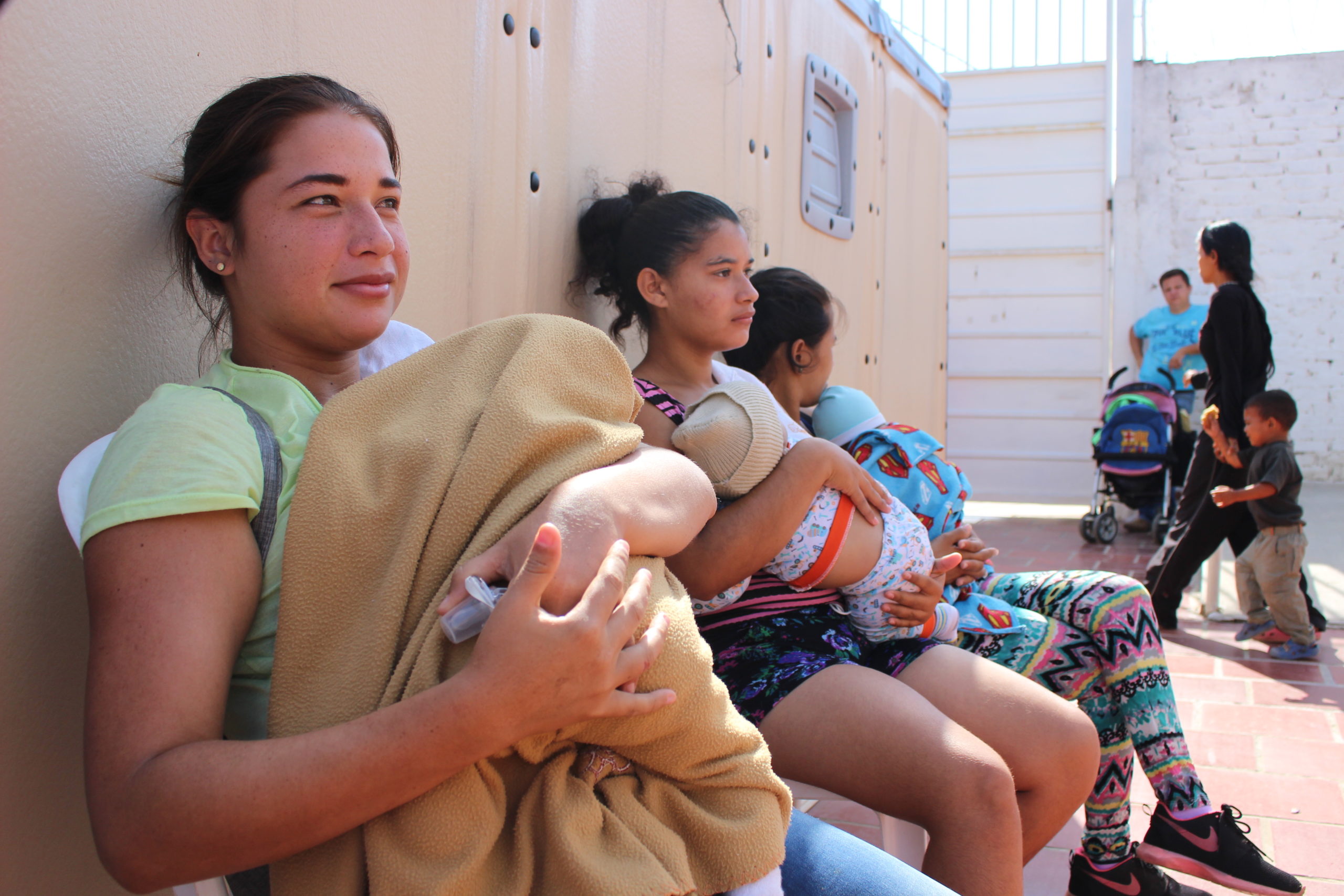
A lack of prenatal care in Venezuela is one of the migrant mothers’ largest motivators for making the journey.
“I did not want to move for the nationality,” said Julifer Nieto, 20. “I wanted her to be born well because I knew that in Barquisimeto I might’ve had to give birth on the floor.”
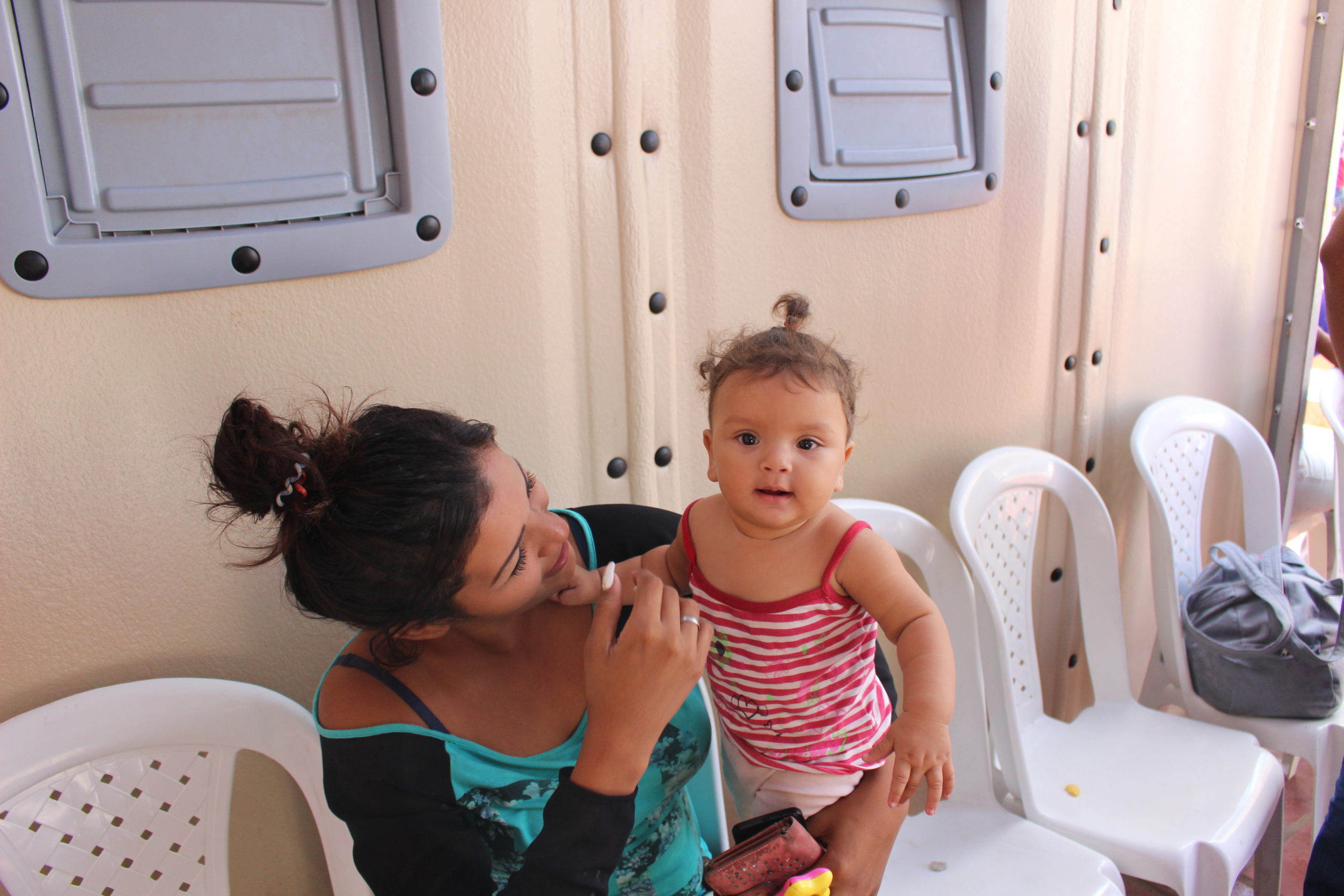
Nieto said her niece was born in a hospital in Barquisimeto, Venezuela, where her sister saw a woman giving birth on the waiting room floor because of a lack of hospital beds.
But in Cucuta, they aren’t immune to a similar problem.
Hospital Universitario Erasmo Meoz, the largest public hospital in Cucuta, has seen a spike in its numbers from 5 percent of Venezuelan mothers giving birth there in 2016 to almost 80 percent in July 2019.
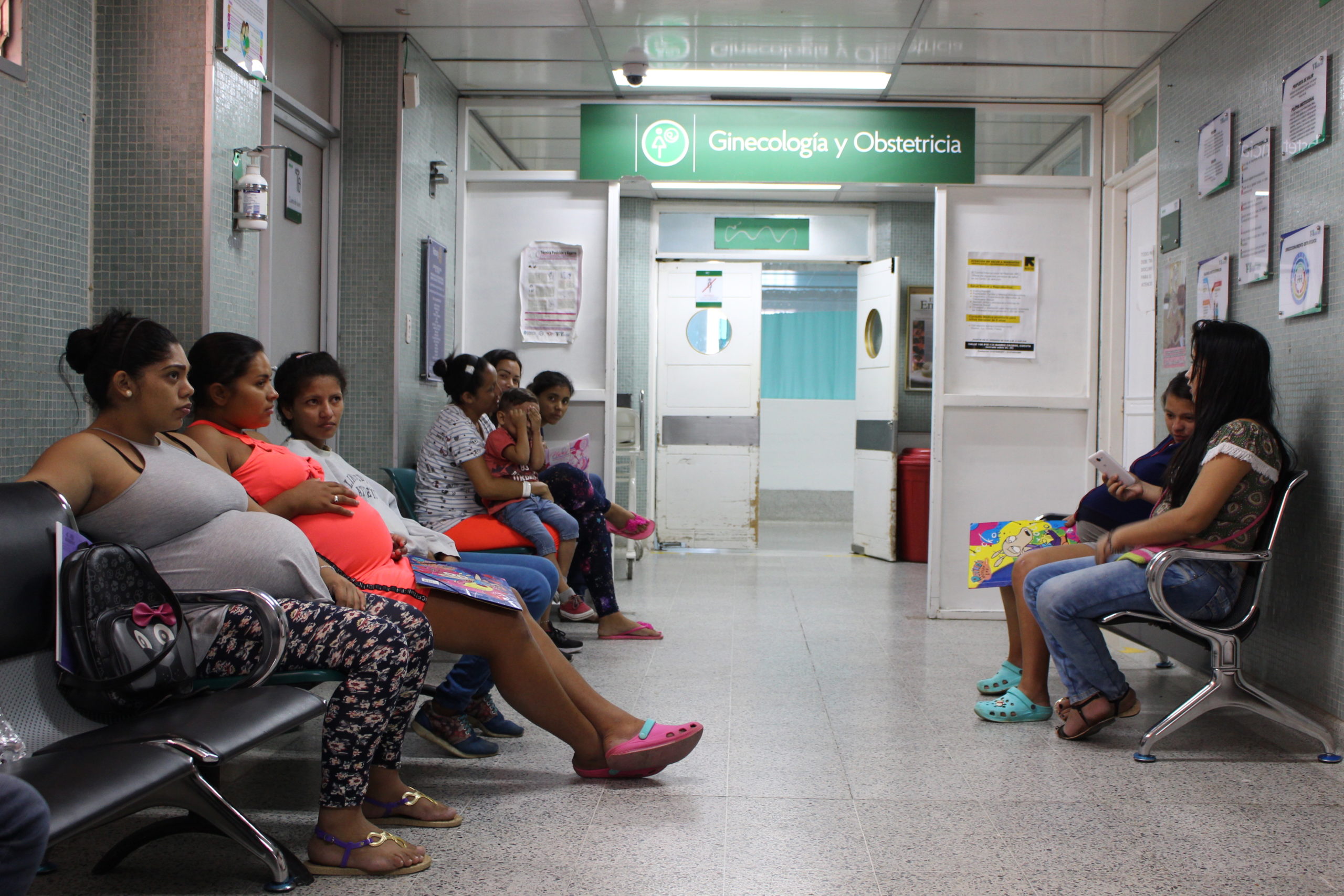
The sub-secretary of Health Care Control for the City of Cucuta, Franklin Hernandez, said the healthcare system in Cucuta has barely remained afloat with the mass migration.
“The services were already collapsed, and as a result of the Venezuelan immigration these public hospitals started to receive that quantity of people that we weren’t ready to receive,” he said. “Not only do we have to address our problems, but we also have to address Venezuela’s problems.”
‘Everyone is exhausted…’

A skyline of Cucuta from above. Image by Mariana Rivas. Colombia, 2019. 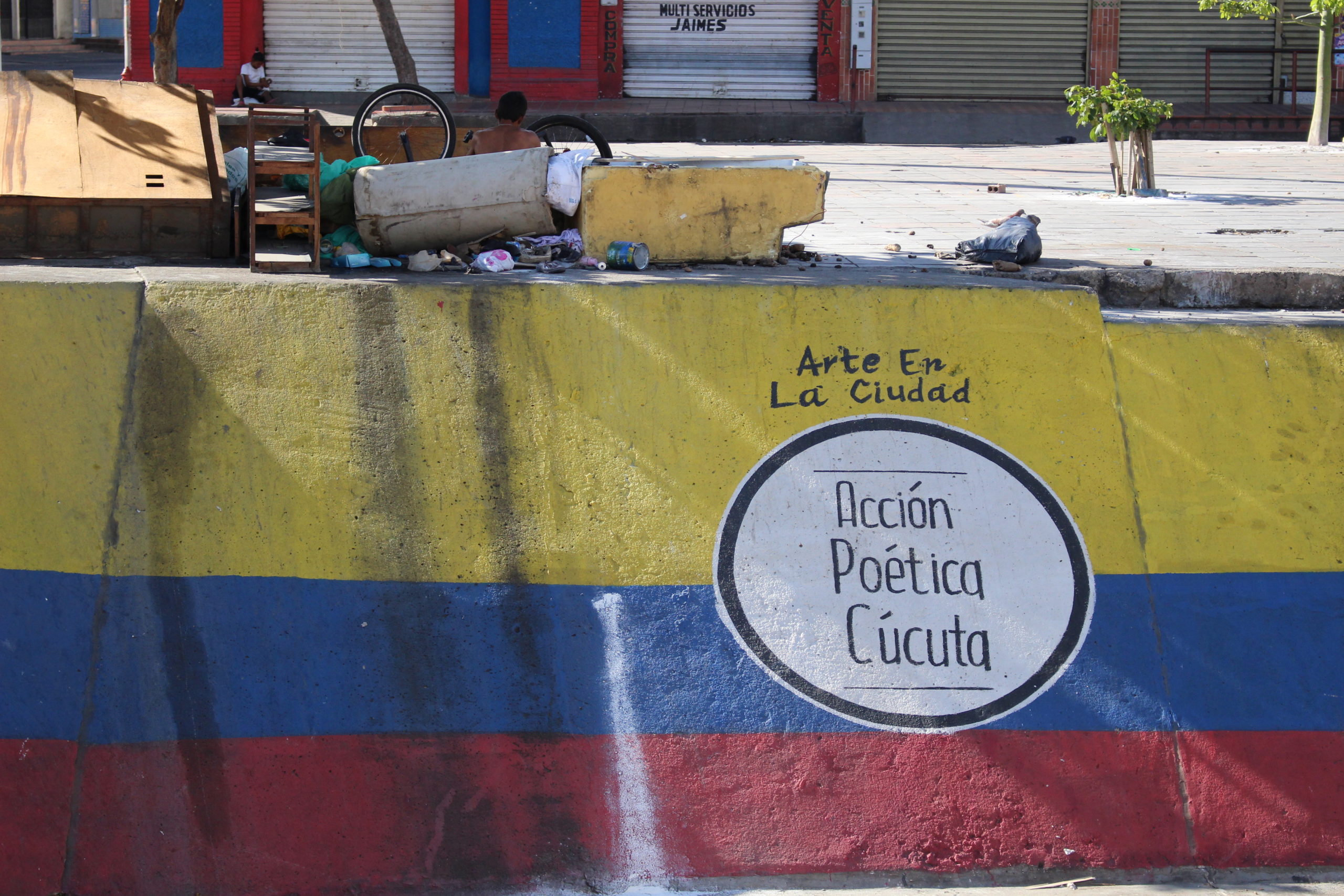
A homeless man has made a mural his place of rest in Cucuta. Image by Mariana Rivas. Colombia, 2019.
Life in Cucuta is hard, but Mendoza and Lopez say they can at least manage. Mendoza works odd jobs when he can find them, and Lopez sells candy on the street.
It isn’t uncommon for cars to be flooded with Venezuelans asking for money at stoplights in whatever way they can: playing music, selling water, cleaning windshields. There is even worry among Cucuta citizens about children being used to beg for money.
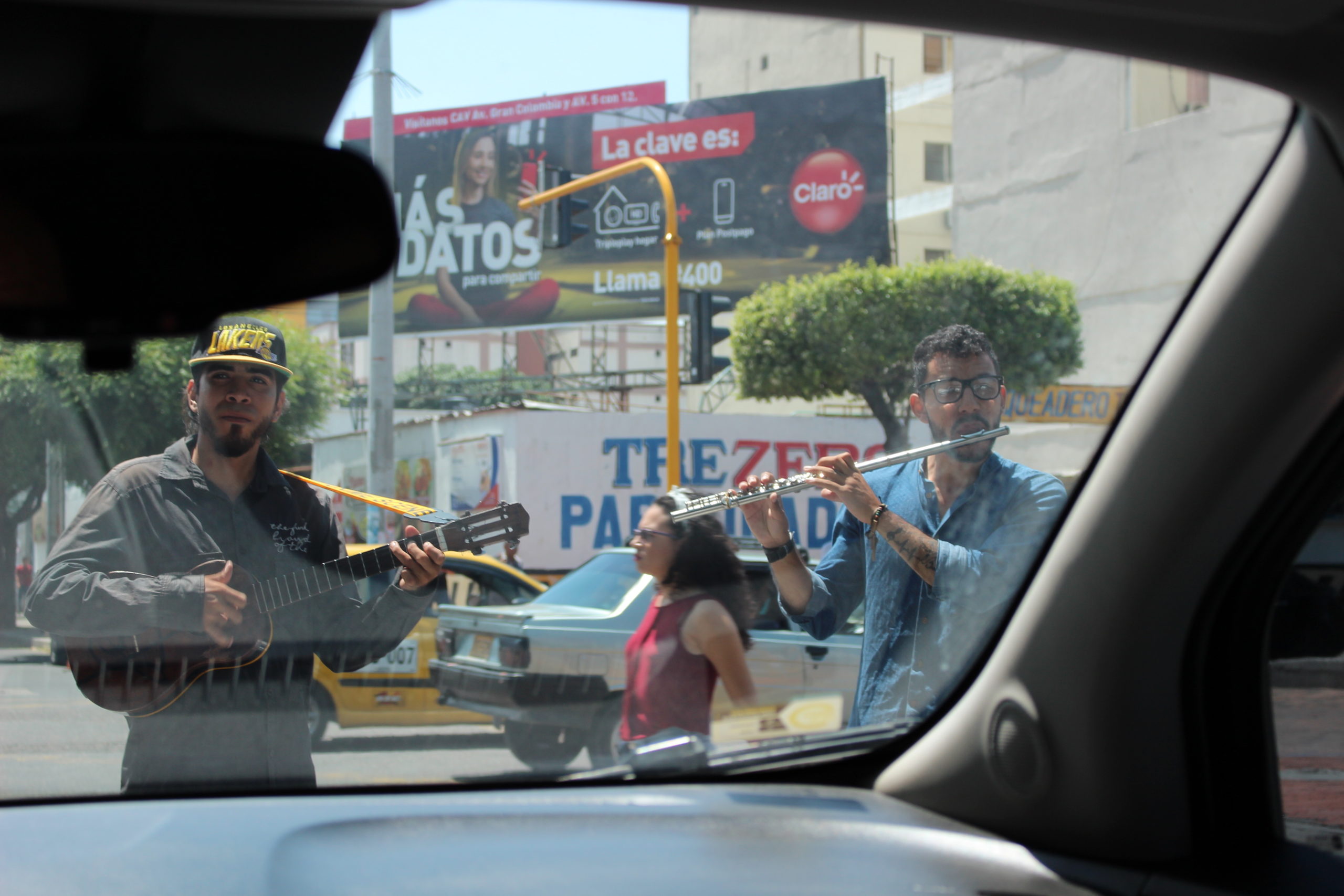
The sheer magnitude of the issue has left many Colombians feeling deflated, even the ones who want to help.
“Everyone is exhausted by the mass of Venezuelans,” said Bortignon. “And it is an exhaustion with a certain vitality. Annoyance. Dirt. Mess. Some violence. Lack of employment.”
Animosity has built up among Colombians as a result of the mass migration, and many aren’t pleased with the government’s most recent resolution.
“It’s also not like it’s very well received that they get citizenship in our society,” said Medina.
This disagreement could lead to a possible lawsuit against the resolution. It could be revoked with relative ease, putting the citizenship status of these children in danger.
Medina cites other imperfections with the resolution; it depends upon Venezuela’s diplomatic status in Colombia. But Medina said the Venezuelan consulates were putting up barriers to the children before requiring a visa or Colombian legal migratory status from their own citizens.
“For Colombia, this has been a very strong cultural shock but also an institutional shock,” said Zair Mundaraim of Juan Guaido’s Venezuelan embassy in Colombia. “And the institutional shock is reflected in all the legal system and all the resolutions. It prevents integration.”
Lopez and Mendoza said they have felt discriminated against since their arrival.
“Those that did bad things when they got here like rob,” Lopez said. “They think that all Venezuelans are like that, but many of us aren’t like that. There are some of us that really work to get what we need.”
A new chaos
Eligia Venezia, 38, came from Venezuela to “test fate” in the hope of a fresh start. She found one, but it wasn’t what she expected.
Instead of finding more opportunities, she was met with obstacles everywhere she went. She and her husband couldn’t find jobs. Authorities threatened to take custody of her three kids. Her youngest son, Vilan, was a stateless baby, and for her, it was the last straw.
“It must have been that everyone was very stressed, and they didn’t want to care for the Venezuelans because of the situation that we’re going through right now,” Venezia said.
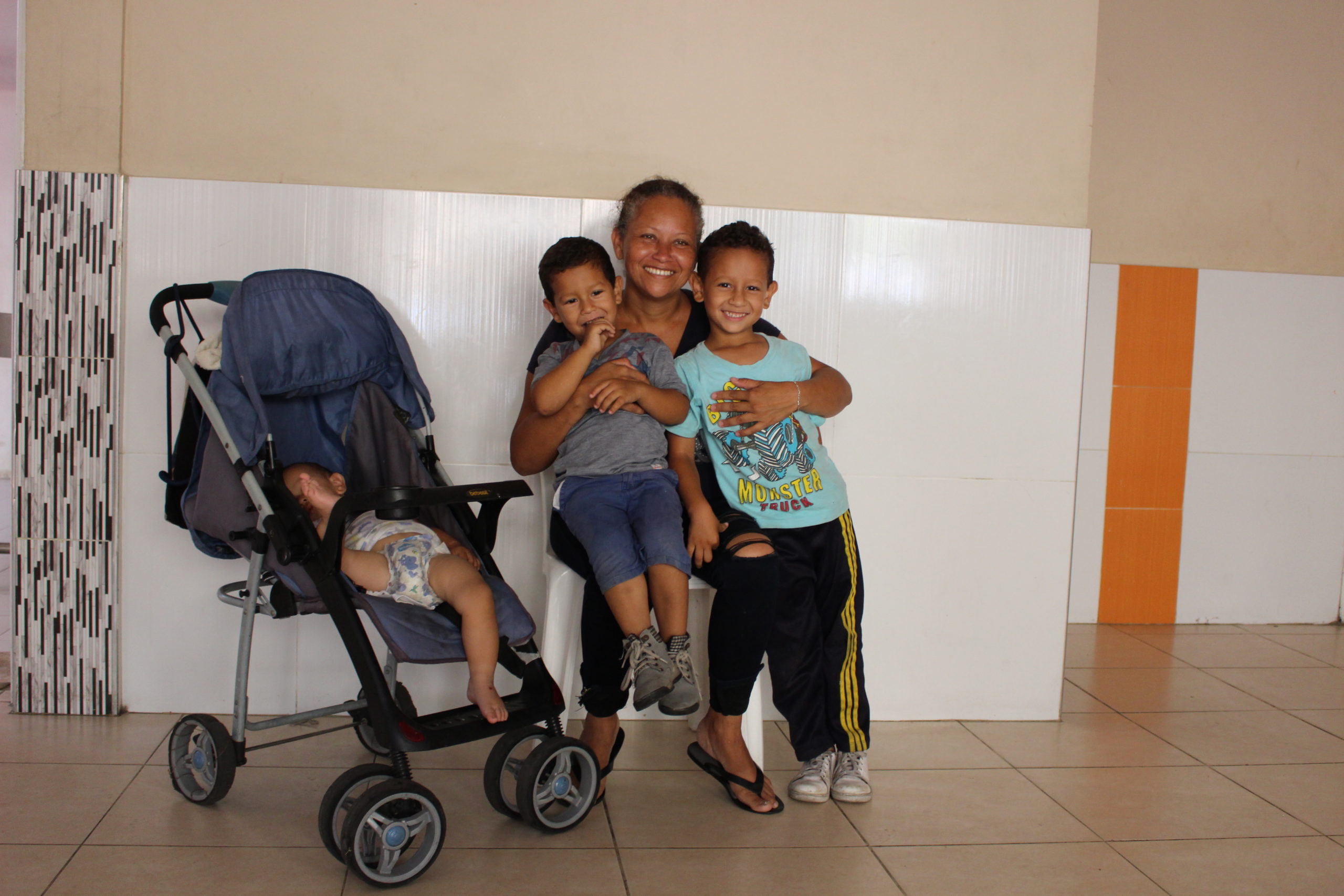
She is currently asking for money to find her way back to Venezuela.
Lopez and Mendoza don’t know whether they’ll return one day; there are times when they consider it.
“If it’s not one thing, it’s the other,” Lopez said. She said problems tend to pile up on them in Cucuta. Their memories of the chaos that once was their home get hazier.
But they choose to stay for their children; they’re determined to make do with their new reality.
“It would be smarter to establish the kids here because we’ve already made the move,” Mendoza said. “The future is theirs. We already passed our time.”
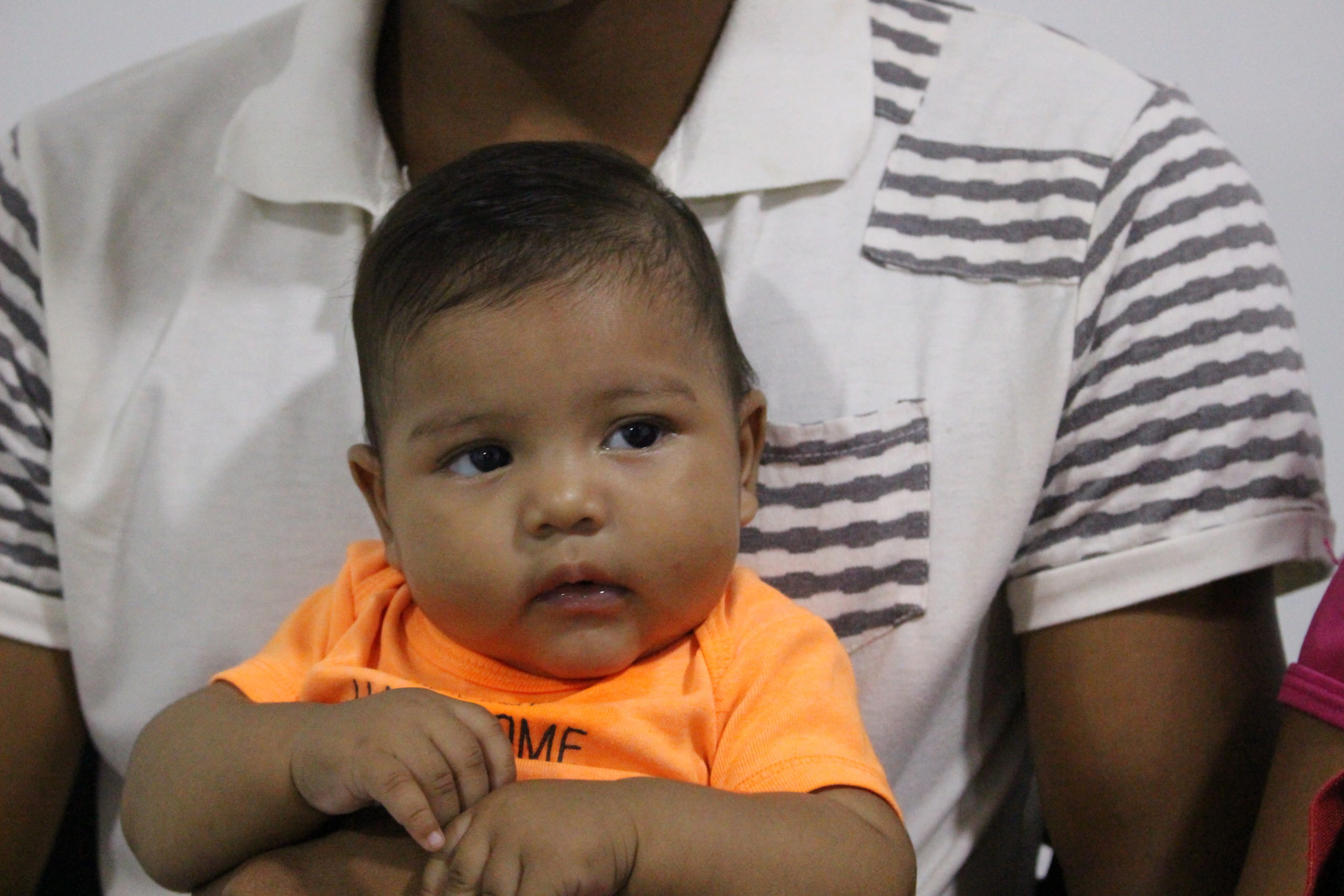
Victor Davic Mendoza, 4 months. Image by Mariana Rivas. Colombia, 2019. 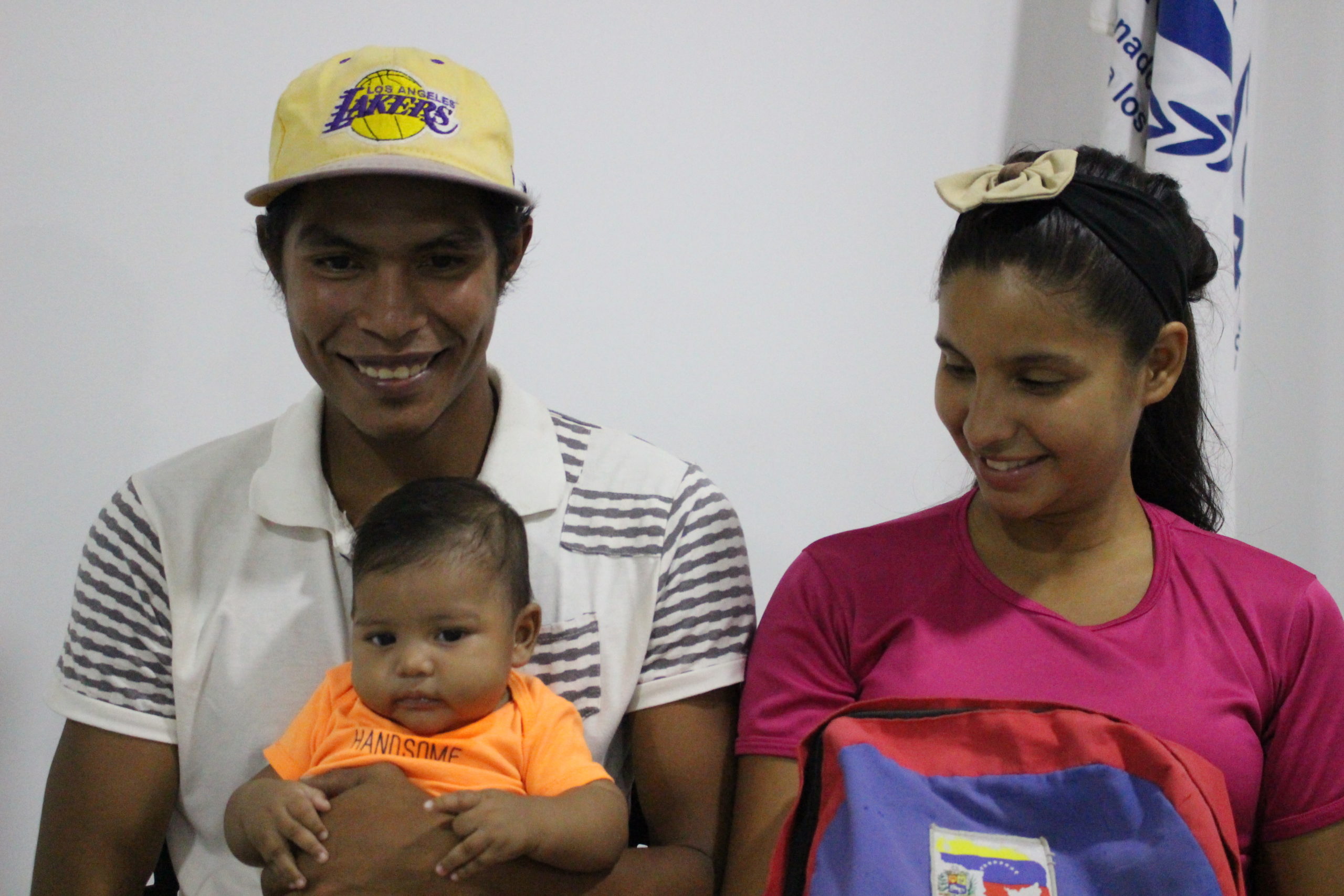
Victor with his parents, Victor Mendoza and Dina Lopez. Image by Mariana Rivas. Colombia, 2019.
They remember when they brought Victor Davic into a world outside of Venezuela’s chaos and into a different one.
Lopez was starting contractions months before her expected cesarean section. The Erasmo Meoz hospital refused to take her in until the scheduled date. The couple slept outside in the main square on two occasions waiting for their slot. On April 24, Lopez was dilated, and they couldn’t hold off any longer. They took her in for an emergency c-section.
Victor Davic was born.
“We’re grateful for the help,” Mendoza said.
Originally published for the Pulitzer Center.

